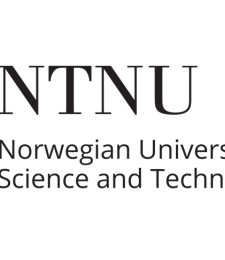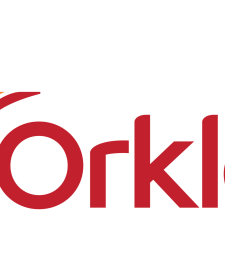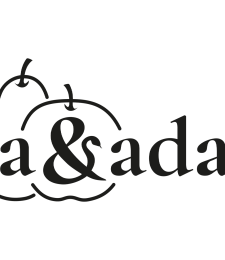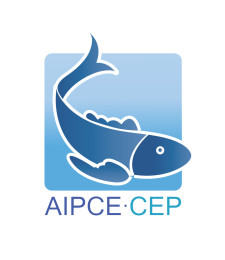Pledges
NTNU (2022)
Pledges

Publishing organisations:
Editorial team
Relevant countries:
Norway
Organisation types:
Business Support Organisation
Next progression check date:
Norwegian University of Science and Technology (NTNU), Norway's largest university with 42,000 students and 9,000 employees, has major ambitions in the actions towards a sustainable food system.
Editorial team
Topics
Norway
Business Support Organisation
-
CoC aspirational objectives
-
-
1. Healthy, balanced and sustainable diets for all European consumers
-
2. Prevention and reduction of food loss and waste
-
3. A climate - neutral food chain in Europe by 2050
-
4. An optimised circular and resource-efficient food chain in Europe
-
5. Sustained, inclusive and sustainable economic growth, employment and decent work for all
-
6. Sustainable value creation in the European food supply chain through partnership
-
Share
The NTNU university, wants to commit to delivering on the aspirational objectives and become a collaborative supporter of the EU Code of Conduct on Responsible Food Businesses and Marketing Practices.
Commitments by aspirational objectives:
Relevant for objectives 1 - 6:
Continuously developing the portfolio and content of relevant study programs (in collaboration with food actors): Some relevant examples: (1) Bachelor and master studies in food science, technology, and sustainability, (2) Biotechnology, (3) Industrial chemistry, (4) Biology, (5) Master in Ocean resources (6) Bachelor in Aquaculture engineering (new), (7) Bachelor in Bio-marine resources, etc., and a wide portfolio of targeted courses. Guest lecturers from industrial areas are widely used in these study programs.
Active involvement in the project Trondheim and Trøndelag European Region of Gastronomy 2022 (strategy group with multi-actors) and particularly in the research project on regional sustainable food systems. Our role is to develop successful collaboration models and meeting arenas between the region’s knowledge providers and representatives from all food actors (including society and consumers).
Memberships and active participation in dialogue arenas for industry: Industry clusters; NCE Aquatech cluster (SMEs and large companies within the aquaculture sector), NCE Blue Legasea (SMEs and large companies within the marine ingredients sector), Agritech Research (cluster of primary producers, steering committee), NTNU has shares in company representing local food actors, food and brewery festival and NTNU is also co-hosting national food competitions (arranged by seafood association and NTNU) etc.
Regional, national, and international collaboration on events such as the Annual Food Festival with >250 000 guests (consumers, local producers…), the Annual Brewery Festival, >10 food seminars events (sustainable food, biotechnology and circular systems, food loss, etc.), and NTNU is planning 1st Annual Nordic Food Forum with Nordic partners.
iFOODNet – International collaboration including developing a model for student innovation training school (launched autumn 2021).
Relevant for objective 1, 2, 3, 4:
Annual co-creation workshops between students and the food industry (mainly SMEs) on targeted sustainable food topics (resource utilization, food loss, climate footprint, etc.) as part of a teaching module.
Annual cross-disciplinary teamwork for master students from all university faculties where the students together work out solutions and approaches to complex challenges. We have included topics such as sustainable aquaculture, circular industries, waste, etc., and in 2023 we will relaunch the topic “future meals”.
OPTiMAT – Optimal utilization of seafood resource - NTNU financed program education ca 10 Ph.D.
Relevant for objective 1, 2, 3, 4, 5:
Bachelor students are being trained in relevant jobs in the food businesses with a set of deliverables and learning outcomes. They are supervised by both company representatives and university supervisors. During the internship period, the students meet digitally with other students and their supervisors and discuss relevant challenging topics.
Relevant for objective 1, 2, 4:
OPTiMAT – Optimal utilization of seafood resource - NTNU financed program education ca 10 PhDs.
OMEGA – National project aiming to increase the use of processing side streams for use as healthy food ingredients (circularity and food fortification).
Relevant for objectives 1 - 4:
Other projects that are exploring the university’s role in regional food systems are (1) collaboration between local restaurants and research laboratories for a gastronomy lab, (2) the regional and national food bank, (3) company clusters dealing with circular food systems, (4) New distribution channels for reducing food loss (start-ups) and (5) arranging seminars, workshops, and lifelong learning for industry actors, etc.
Relevant for objective 1, 3:
Annual arrangements between students (Bachelor, Master, Ph.D., lower grade) meet aquaculture actors on relevant topics such as sustainable aquaculture.
Relevant for objective 1, 4:
MEATigation – Mitigating climate change through meat - a national project.
Aspirational objective 1: Healthy, balanced, and sustainable diets for all European consumers, thereby contributing to:
1) Reversing malnutrition and diet-related noncommunicable diseases (NCDs) in the EU.
2) Reducing the environmental footprint of food consumption by 2030.
With the following aspirational targets:
a) Improved food consumption patterns in the EU.
b) A food environment that makes it easier to choose healthy and sustainable diets.
Aspirational objective 2: Prevention and reduction of food loss and waste (at the consumer level, within internal operations, and across value chains)
With the following aspirational target:
A 50% reduction of per capita food waste at the retail and consumer level by 2030 and reduced food losses along the food production and supply chains in the EU.
Aspirational objective 3: A climate-neutral food chain in Europe by 2050
With the following aspirational target:
Reducing net emissions from own operations, contributing to a 55% GHG emission reduction target in the EU food chain by 2030 (following a science-based approach).
NTNU commitments:
Enough –H2020 project that will identify how the food industry can become net-zero by 2050.
Aspirational objective 4: An optimised circular and resource-efficient food chain in Europe
With the following aspirational targets:
a) Improved resource efficiency within own operations, contributing to sustainable, efficient use and management of energy and natural resources in operations by 2030.
b) Improved sustainability of food and drink packaging, striving for all packaging towards circularity by 2030.
Aspirational objective 5: Sustained, inclusive, and sustainable economic growth, employment, and decent work for all
With the following aspirational targets:
a) Improved resilience and competitiveness of companies operating at any point along the food value chain by 2030.
b) Quality jobs, skilled workforce, and safe and inclusive workplaces for all.
Aspirational objective 6: Sustainable value creation in the European food supply chain through partnership
With the following aspirational targets:
a) Improved resilience and competitiveness of companies operating at any point along the food value chain by 2030.
b) Continued progress towards sustainable production, contributing to sustainable management and efficient use of natural resources by 2030 and improved animal welfare.
Full detail of the pledge in the provided attachment.
Documents
Comments (0)
See also
-
9
Orkla (2021)
Publishing organisations: Orkla
Relevant countries: Norway
Organisation types: Company with 250 or more employees
Next progression check date:
- Categories
- 2. Prevention and reduction of food loss and waste 3. A climate - neutral food chain in Europe by 2050 4. An optimised circular and resource-efficient food chain in Europe +3 more
-
2
Eva&Adam (2021)
Publishing organisations: Eva&Adam
Relevant countries: Austria
Organisation types: SMEs (a company with less than 250 employees)
Next progression check date:
- Categories
- 2. Prevention and reduction of food loss and waste 3. A climate - neutral food chain in Europe by 2050 4. An optimised circular and resource-efficient food chain in Europe +3 more
-
4
AIPCE CEP (2021)
Publishing organisations: AIPCE CEP
Relevant countries: Belgium
Organisation types: Industry Associations and Chambers of Commerce
Next progression check date:
- Categories
- 2. Prevention and reduction of food loss and waste 3. A climate - neutral food chain in Europe by 2050 4. An optimised circular and resource-efficient food chain in Europe +3 more




